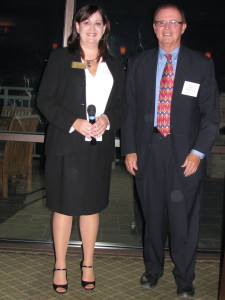Probate is the legal process which occurs after a person dies. Its purpose is to prove in court the validity of a deceased person’s Will. It also serves to inventory the deceased’s property and pocessions, have property appraised, pay debts and taxes, and to distribute the remaining property to beneficiaries as the Will instructs.
Assuming the deceased’s Will is up to date and properly drafted, the probate process should be fairly quick and painless. If there isn’t a Will however, or if the Will is somehow insufficient, then the process can become long and stressful.
If you do find yourself as a beneficiary to an unprotected estate, void of a Will, or where the Will is contested, rest assured that you are not without options. Most estate planning attorneys also handle probate proceedings.
Regrettably, people often choose to face their own mortality without the benefit of a Will. There are many reasons for this, but the biggest may be the worry over the expense involved. It isn’t hard to imagine that our heirs are equally concerned about consulting attorneys for the same reason.
Not long ago, we met with a client whose mom had passed, leaving her as the sole heir to mom’s estate. Mom did not have a Will, but she did have a valuable home which she intended her daughter to inherit. Being the sole heir, the daughter decided to represent herself in probate court. She showed up to court as instructed, filled out the necessary paper work, and followed procedure. What resulted were rejection notices and requests for resubmissions. The process left her fed up and frustrated.
She came to see us nine months later. During her consultation, she made it clear that money was an issue. She expressed concern and worry while sharing information in our conference room. She knew that she needed help from an expert but she didn’t think she could afford it.
What the client didn’t know, and what most people don’t know, is that good estate planning/probate attorneys are paid from the estate property. In our case, the attorney’s fees were paid from the proceeds after the house sold.
People don’t always understand that probate is just a legal process. It can be excruciating or it can be relatively painless. It all depends on how the person prepares. A properly drafted estate plan, including a Will and Trust is always the best path. Nevertheless, if a beneficiary doesn’t have the benefit of these documents, they still have an alternative path in hiring a probate attorney. The probate attorney can handle paper work, the appraisal process, follow up, and other various duties, all without billing a penny until the probate is final.
Three Types of Wills
A Will is a terrific device whose purpose is to protect the wishes and property of an individual, long after an individual can no longer do so for them self. That said, not all Wills are created equally. Most people living in California are unaware that there are three kinds of Wills that our state recognizes: Holographic Wills, Statutory Wills, and Attorney Drafted Wills. This article will describe in detail these three types of Wills.
The Holographic Will is rarely used except in cases of emergency, due to the ease in which it can be contested. A Holographic Will does not have to be notarized or witnessed. The Will must be entirely in the author’s handwriting. The document must be legibly handwritten. In addition, if the author types anything into the Holographic Will, it may cancel the entire Will. The intention of the Will must be clear. There can be no question of what the author is leaving and who will receive it. In two words, this kind of Will is “high maintenance”. But, if you find yourself in dire circumstance with no time to spare, and no attorney to consult, it could arguably be better than not having a Will at all.
Statutory Wills are prewritten Wills created by the state legislature, and written into state law; meaning that you have to use the Will exactly as they are drafted and without amendment. If you are a state resident, you may use this Will at no cost by simply filling in the form. As a rule, their inflexibility, and inability to change the language or add clauses makes them a secondary choice. Yet, if you need a very simple, straightforward Will, then a Statutory Will might suit you.
The Will that most people are familiar with, is a will drafted by an Estate Planning Attorney. A “drafted” Will is created to suit individual needs. A properly drafted Will meets California legal standards while allowing for the addition of provisions to fit individual needs. For example, if a person wants to exclude a family member from receiving benefits, name a guardian to raise children in the event of death, establish and fund a Trust for surviving family, choose between burial and cremation, or name their own Executor as opposed to having one appointed by the state, they can. The freedom provided by this kind of Will makes it easy to see why “drafted” Wills are the most popular.
Whether it is drafted or prewritten, make certain you choose a Will that is right for you. When planning a Will, consult with an Estate Planning Attorney. An Estate Planning Attorney will be able to answer any questions and ensure the Will meets your goals. In addition, most attorneys provide a free consultation. A good attorney will use that time to bestow their knowledge and explain all options with clarity.
Make Sure Your Assets are in Your Trust!
After your estate planning attorney has drafted a Living Trust that perfectly fits your particular needs and you’ve signed the Trust agreement, you’re done, right? … Almost. Simply signing the Trust agreement isn’t enough for a Living Trust to function properly. After the agreement is signed, your Trust must be “funded.” If you don’t do it, then your Trust will have no effect.
This isn’t anything that should greatly worry anyone working with a good estate planning attorney, as the attorney should help you. Yet, here is where things have the potential to get tricky.
Let’s say you have found a great estate planning attorney. For argument sake, let’s say that you have even hired our own Debra Leffler Streeter, the 2014 North County Bar Association President. Madam President has worked with you to fund the trust immediately (as most good attorneys will). You shake hands, part ways, and expect that everything is okay. And it is okay. Until … Story time …
We recently met with a client who created a Trust, funded the trust, and later discovered upon meeting with our attorney, that her house was no longer funded in the Trust. How in the world did that happen you might ask?
The answer is that the client had refinanced her home after having the Trust prepared. The lender required that she remove the home from the Trust. Unfortunately, the client was unaware that once removed from the Trust, the home would need to be transferred back into the Trust.
In my telling of the story there is a happy ending. We caught the mistake within her lifetime, updated her Trust, and everyone lives happily ever after. Whew!
Sadly, the real story is a little different. The client was actually the daughter. The Living Trust belonged to her mother, and the solution was going to court to fix the problem. If the error had been caught while mom was still alive, then we would not have gone to court. Preventing court involvement was a major reason for having the Living Trust drafted in the first place. This cost the family thousands of dollars and months of a delay that could have been avoided.
If you have a Living Trust you might be asking, how was she able to remove the house to begin with? How do I prevent this from happening to me?
Well, the answers are, that you can remove from or transfer into your Living Trust as frequently as you like. Why would you do that? Let’s say that you sold your house. Clearly you would want to remove that asset. A little further down the road, you buy a new home and you need to transfer that new property into the Trust.
The moral of the story is: The best advice that anyone can give to someone with a Living Trust, is to have that Trust reviewed regularly, every couple of years. Any change in the Trust, i.e. adding or removing a property, is cause for an update. This will keep your plan safe, and will also keep you up to date should there be any changes in the law that might affect you.
President Streeter
 In January, 2014, Attorney Debra Leffler Streeter took the seat as President of the North County Bar Association (NCBA). As the lead attorney at Streeter Law Group, Ms. Streeter helps families and businesses plan for the future, offering services in estate planning, elder law, and asset protection. She shows a commitment to her local community by her involvement in many organizations and is second-to-none when it comes to supporting her family.
In January, 2014, Attorney Debra Leffler Streeter took the seat as President of the North County Bar Association (NCBA). As the lead attorney at Streeter Law Group, Ms. Streeter helps families and businesses plan for the future, offering services in estate planning, elder law, and asset protection. She shows a commitment to her local community by her involvement in many organizations and is second-to-none when it comes to supporting her family.
Ms. Streeter grew a law practice different from most. Clients continue to comment on her thorough detail oriented results, and her attentiveness. Her emphasis on personal service guarantees that each client feels confident with their planning decisions.
Debbie is also active in the following organizations: State Bar of California, Medicaid Practice Network, California Association for Nursing Home Reform, California Care Planning Council, and the National Association of Elder Law Attorneys. She provides educational speeches on issues involving elder law and estate planning, and is held in high regard by other attorneys on these matters.
While she maintains a successful career – based on helping other families, Debbie remains committed to her own family. Both of her children having expressed interest in becoming lawyers “like mom” when they grow up. Obviously, her positivity and dedication showed through in every part of Debbie’s life.
Debbie’s dedication to her profession, knowledge of the law, and commitment to her clients makes her the perfect person to be named 2014 President of NCBA. So, whether you are starting a family or a business, rest assured that Debbie, and Streeter Law Group will be there for you, providing the highest level of personal service.
